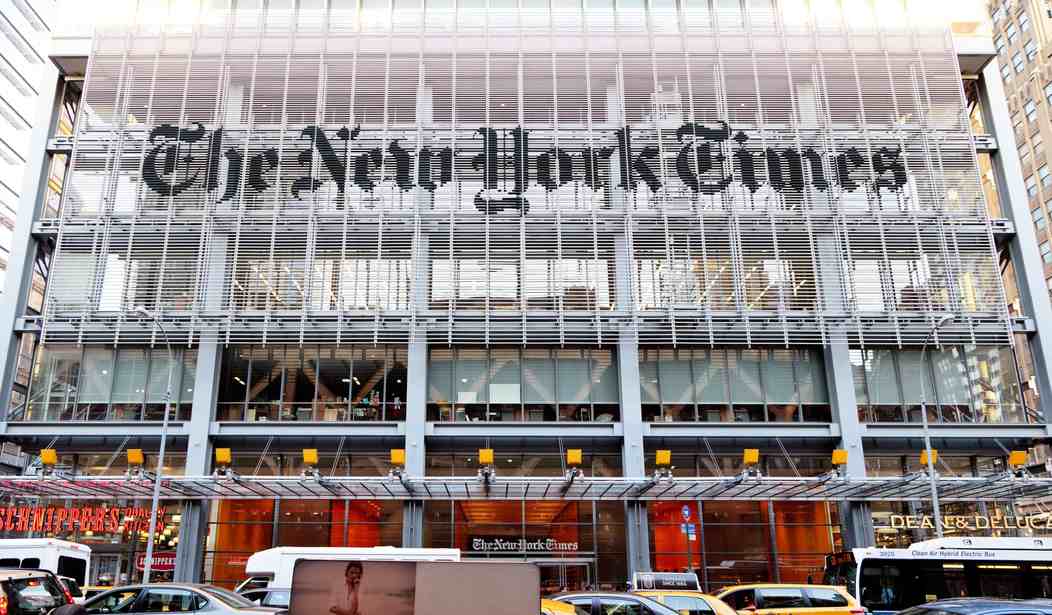In an interview about preparing The New York Times to cover Donald Trump’s upcoming presidency, an executive editor of the newspaper admitted that the media “powerhouses” in New York City and Washington, D.C., just “don’t quite get religion.”
“There is no question that we have a truly unusual figure who’s about to occupy the White House,” the Times‘ executive editor, Dean Baquet, told NPR in an interview. “And he’s bringing along with him other truly unusual figures. My plan is to double down on explanatory and investigative reporting in the Washington bureau because I think we have to understand what happens.”
Covering the Trump presidency also involves reporting on opinions from the heartland, Baquet added. “I want to make sure that we are much more creative about beats out in the country so that we understand that anger and disconnectedness that people feel,” he said. “And I think I use religion as an example because I was raised Catholic in New Orleans.”
“I think that the New York-based and Washington-based too probably, media powerhouses don’t quite get religion,” the executive editor admitted. “We don’t get religion. We don’t get the role of religion in people’s lives. And I think we can do much, much better. And I think there are things that we can be more creative about to understand the country.”
Especially when it comes to religion, the Times indeed has a lot to learn. Often, the paper proves surprisingly illiterate about basic matters of Christianity. For instance, Jesus isn’t buried in a tomb, Easter is not about Jesus’ ascension into heaven, and — perhaps most egregious — the book of Romans doesn’t call for the execution of gay people.
In September, the Times’ Nicholas Kristof asked “What Religion Would Jesus Belong To?” which is much less interesting a question than “What Denomination Would Jesus Belong To?” PJ Media’s own John Ellis answered Kristof’s question simply and directly: “Jesus would be the religion that bears his name – CHRISTianity.”
Beyond the quibble with the headline, Kristof argued that Jesus “was a radical who challenged the establishment,” while many Christian denominations have become the establishment. But his idea of twisting Jesus is less religious than political, and the key ideas are “anti-poor, anti-environment, anti-gay, anti-intellectual, anti-immigrant and anti-science.”
Yes, Jesus wasn’t any of those things — but neither are Christian Republicans today. They just disagree with the rote liberal positions on these issues. Jesus wasn’t anti-responsibility, anti-free speech, anti-energy, or anti-marriage either.
Jesus didn’t care about policy. He didn’t care about government. Jesus cared about whether people repented of their sins, were reconciled to God, and got to live eternally with Him. Christian denominations disagree on how people accept this Gospel, but this basic message is what Jesus preached, and it’s why he’d be a Christian today. Read the gospels if you want to find out more.
But Baquet wasn’t just right about the media misunderstanding religion — he was right to connect this error to the widespread assumption that Hillary Clinton would win the presidential election. Christians did indeed propel Trump to victory, even if biblical Christians were not the key demographic.
Indeed, as Ramesh Ponnuru pointed out at National Review, the Clinton campaign’s conscious decision not to appeal to evangelical Christians may have cost her the presidency. In 2012, President Obama won 24 percent of white voters in the state who said they were evangelical or born-again Christians. Clinton got only 14 percent of them.
“If Clinton had replicated Obama’s performance among them,” Ponnuru wrote, “she would have gotten an extra 2.7 percent of all voters” in Ohio. Instead, she lost the state — and 16 electoral votes — by 0.2 percent.
A similar story holds in Wisconsin, where Obama’s portion among white evangelicals would have given her 1.1 percent of the vote (she lost by 0.7 percent). The story repeats in Florida, where Obama’s portion of the white evangelical vote would have given Clinton 1.4 percent or more (and where she lost by 1.2 percent).
If Ohio, Wisconsin, and Florida had gone for Clinton, she would have won 287 to 251 electoral votes.
In an election as close as 2016, you could argue that any specific sliver would have made the key difference, but those numbers are revealing, especially since Clinton represented a serious threat to traditional Christianity.
Baquet’s admission that many in the media “don’t quite get religion” is heartening, and journalists should take it to heart. It is refreshing to hear an editor of the country’s newspaper of record so frankly admit a key error like that. Let’s hope mainstream media outlets — and the Times especially — take heed.








Join the conversation as a VIP Member